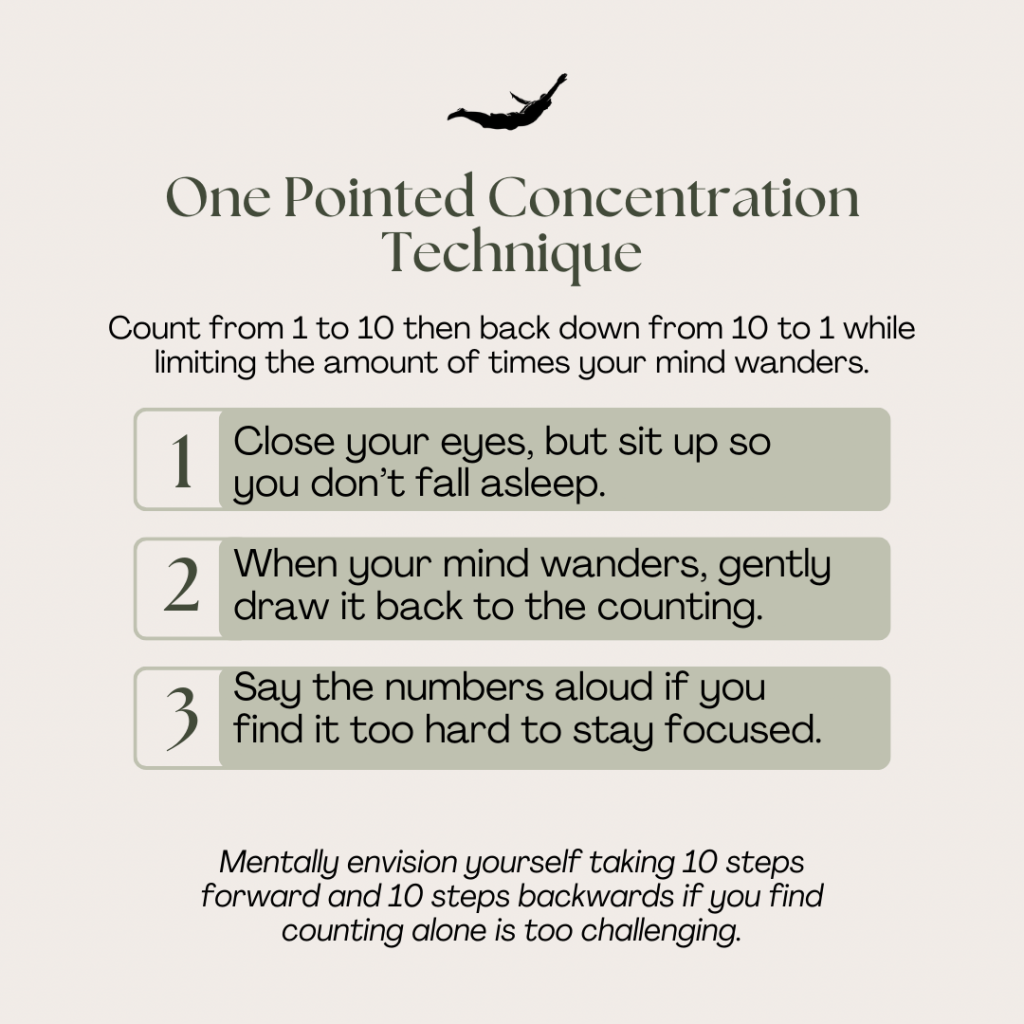The cause of most suffering comes from the mind. An over-identification with thoughts and how we think about ourselves.
The root of my depression and burnout was a collection of self-limiting thoughts that were running on repeat in my mind.
“You are not doing enough”
“People will be disappointed in you if you say no to them”
“You’re lazy”
“You’re a mental health professional, and your mental health is shit”
“Just give up”
“Life is never going to improve, so what’s the point”
“You’re going to be single forever”
The list could go on.
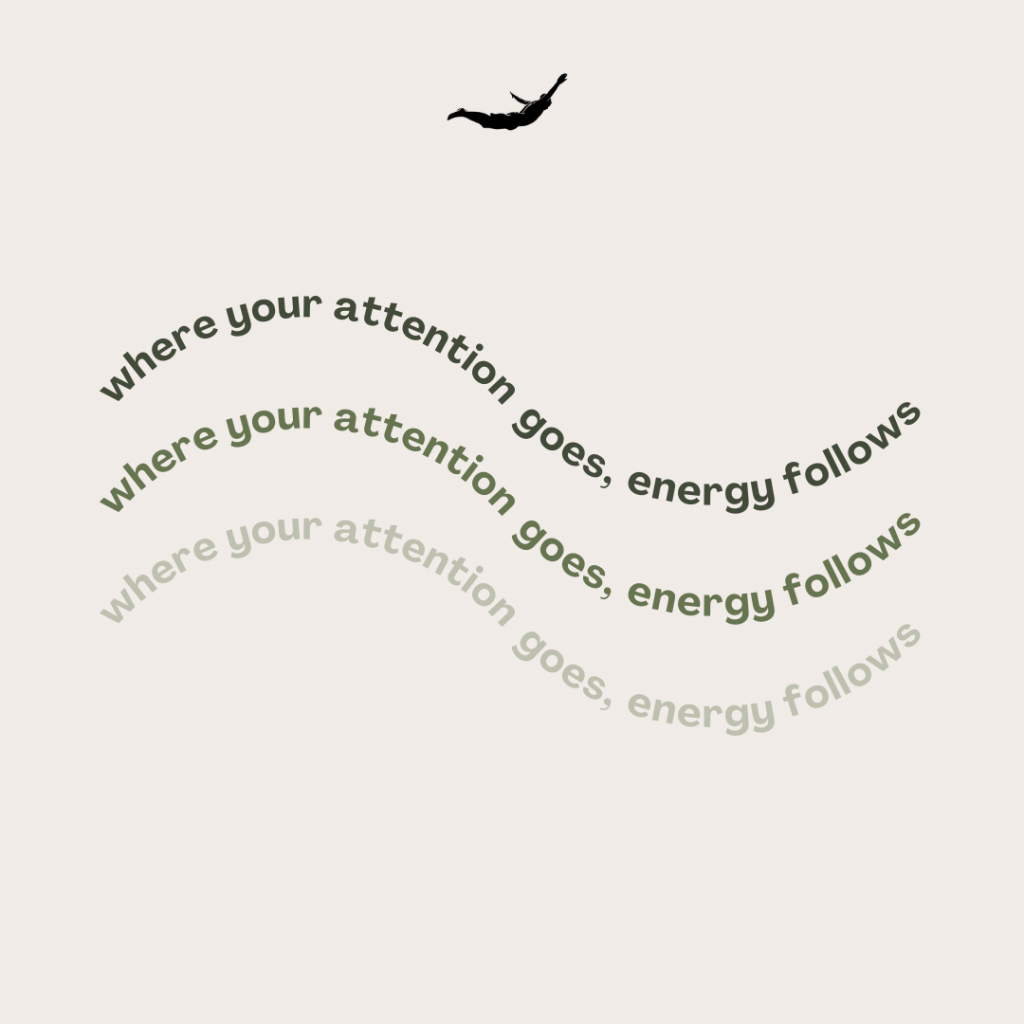
My inner critic is harsh and disrupts my peace constantly. So, I’ve had to learn ways of dealing with this part of myself if I wanted to find my way through this dark night.
One thing I have learned about myself through all this is that my mind is extremely powerful and persistent – it never stops or takes a break. It can take me on a ride, and some days, I feel like I don’t have any control over it.
In actuality, I am a believer that we don’t have “control” over our minds and never will. I believe we have control over our awareness (where we place our attention). On days when I feel I have no “control” over my mind, I place my attention on my mind. I am entertaining every thought, identifying with it, and making it mean something about me.
Finding more peace of mind for me has meant choosing to stop making meaning out of my thoughts and just letting them pass without latching onto them.
This is called disidentifying with thought.
You see, the mind never stops. It’s not meant to stop. Even when we sleep, the mind is processing the day through dreams. The mind’s job is to be on guard, keep us safe, and solve logical problems. It is our built-in survival mechanism so we can be vigilant of our surroundings and survive. So, it is a pointless pursuit to try and stop or control the mind. We have to learn to control where we place our awareness or attention.
So, I’m sure you can see more clearly now how we can create our own suffering by over-identifying with our thoughts. The process of identification itself is about making meaning of something. When we identify with our thoughts, we make them mean something about us.
When we believe our self-critical thoughts, we are giving them power over us.
This is a self-defeating pattern that can lead to depression, anxiety, and an overall poor self-image.
If you want to stop defeating yourself and start taking back “control” of how much you identify with your mind, then I encourage you to try this process:
Here are some tips on how to stop over-identifying with thought:
-
-
- Pay attention to your mind over the next couple of days and notice with curiosity (not judgment) where your mind wants to take you – become the witness observer of your mind
- Notice your urge to identify with your thoughts and entertain them (latch on and make meaning of them)
- Resist this urge and pull your awareness away from that thought
- You can pull away from another thought (thought discipline), or you can pull away from the felt sense of who you are (focus on body sensations), or you can simply shift your attention to your breath.
- Repeat over and over again to form new mental habits
-
The mind is made up of habits, shortcuts, and patterns
This is very adaptive in so many aspects of life and is key to our survival. However, it is maladaptive when it comes to how we think and feel about ourselves. If the inner critic is operating on the same habitual circuitry, it can cause a great deal of suffering because the mind gets stuck in loops of negative thinking, and we might feel as if we cannot get out. This means you need to be diligent and discerning with your mind if you want to interrupt the habits and patterns that are connected to your inner critical thoughts.
I came across a Buddhist meditation practice about 8 years ago
It helped change the lazy mental habits that my inner critic was feeding from. It’s called One Pointed Concentration (OPC). I use the above process I shared more reactively because it helps when I am in a loop or notice a loop starting. I use OPC more proactively because it helps with rewiring the brain by training the mental muscles of attention. Many of us have attention deficits that lead to lazy mental habits, which the inner critic exploits. If we can clean these up, then we can stop identifying with the self-defeating thoughts and have more peace of mind.
Here is how One Pointed Concentration works:
Point your concentration toward things like your breath, counting, candle flame, song, etc. It can be anything of your choosing. The idea is to experience the moment without the mind, and when the mind tries to interject, you gently and compassionately draw your attention back to the object of concentration. This process isn’t about the rejection of the mind or achieving a state of no mind; it’s about mastering your attention.
Start with 5 minutes once a day and then work your way up to 5 minutes twice a day.
You will notice over time the development of what feels like mental strength, but in actuality it is your muscle of attention growing stronger.
If you want to learn more about what I shared in today’s newsletter, I wrote a whole book called Be The Space: A Loving Guide To Creating Inner Peace Through Present Moment Awareness. It’s loaded with all the wisdom I have acquired over the years about mental mastery and how to find more peace when you have an over-active mind.
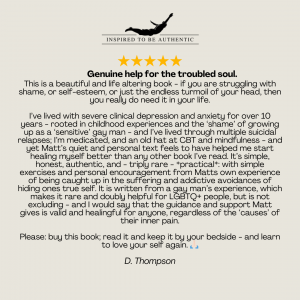
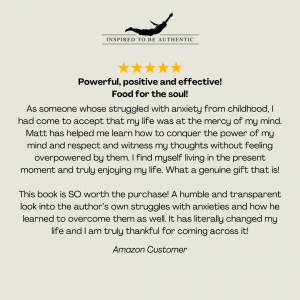
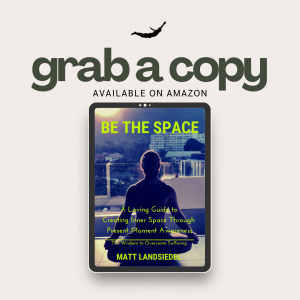
Grab a Copy
If you struggle with burnout or any of the codependent patterning I spoke of, consider taking one of my ARE coaching programs. You will get all the resources you need to overcome over-functioning and codependency. You can check out my next two offerings below.
Lift your cheekbones,
Matt


